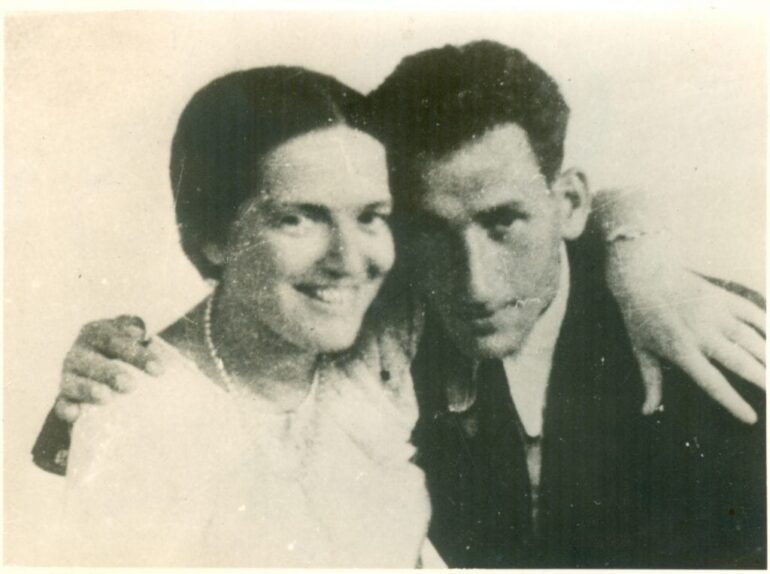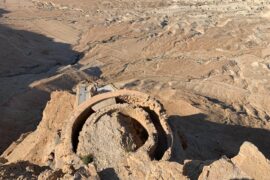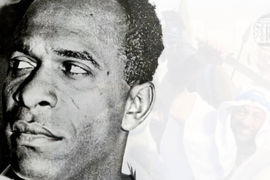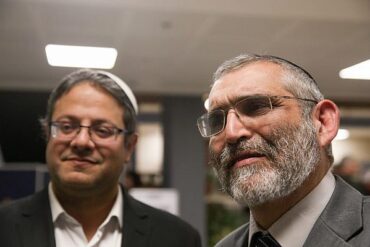The 25th of Shvat marks the anniversary of when Avraham “Yair” Stern was murdered by the British regime. He was a revolutionary thinker and poet who inspired a liberation movement that restored Jewish independence to the land of Israel after nearly 2,000 years. Below are some facts about his incredible life.
- Yair was born in Poland in 1907 and arrived in the land of Israel in 1926, then under the control of the British Empire. Yair devoted his life to fighting for Jewish freedom. A few years after arriving in the country, he joined the Hagana militia, precursor to the Israel Defense Forces. He would go on to become a leader in the Etzel, an alternative Jewish paramilitary organization, and the founder of the Fighters for the Freedom of Israel (known by its Hebrew acronym Leḥi).
- Yair had a clear vision for what Jewish liberation looked like and how to achieve it. He was able to cut through rhetoric and posturing to identify potential allies and the real obstacles to freedom. Despite the anti-Semitism of Poland, Yair was not afraid to work with the Polish government to advance his vision of a free and independent Israel. In 1938, he reached an agreement with Polish authorities to train forty thousand Jews in Poland to launch an invasion of Eretz Yisrael.
- Yair understood that the real obstacle to Jewish liberation was British control of the homeland. While most Zionist leaders sought cooperation and partnership with the British regime, Yair saw the British as foreign conquerors with no legal or moral mandate to govern the country. In 1939, in response to more than a decade of British policies that carved up the land, sowed conflict between Arabs and Jews, and severely limited Jewish immigration, Yair began to lead the Etzel in attacks against the British occupation.
- At the start of World War II, Yair broke with the Etzel. While the Etzel command followed Jabotinsky’s lead and sought to participate in the British war effort, Yair saw the start of the war as a critical moment that could be exploited by opening a Jewish second front against England. Yair called for the mass evacuation of Jews from Europe and armed resistance against the British in order to establish a free Jewish state. A year later, he formed what became the Leḥi.
- Under Yair’s leadership, Leḥi organized armed resistance to British occupation, including attacks on British colonial police forces and retaliation for British injustices, such as burning an immigration office after British authorities deported Jewish refugees that had escaped from German concentration camps. On February 12, 1942, British detectives found Yair, cuffed him and shot him dead.
- Yair’s Leḥi movement restored agency to the Jewish people and fought for Jewish self-determination as an inherent aspect of what it means to be Jewish. Unlike the Zionist movements of the time, which viewed the land of Israel as a tool for solving the problem of anti-Semitism, Leḥi related to Jewish independence in the land of Israel not as means to an end but as a worthy and just goal on its own merit. The British had hoped that killing Yair would extinguish his revolution, but it did the opposite. Leḥi went on to lead the armed struggle against British rule, eventually forcing the Etzel and Hagana to take up arms against the foreign ruler. As a result, the British were forced to retreat and a Jewish state was established.
- Some of Yair’s poetry:
“We are Unknown Soldiers without uniforms
Surrounded by terror and death.
For the rest of our lives we are enlistees,
Discharged from the ranks with our last breath.
On red days of blood and atrocities,
On black nights dark with despair,
We’ll raise our flag in the towns and the cities;
On that flag, ‘Protect and Conquer’ will appear.”
(Anthem of Leḥi)
“We live underground!
Between damp basement walls,
Beneath a bulb’s pale light,
On a floor on which the rain falls.
In the dark underground we
Have been blinded by a dream:
The floor’s puddle is-the Sea of Galilee;
The bulb’s light-a sunbeam.”
“As my father carried
A prayer shawl to Sabbath Synagogue,
I carry sacred pistols…”
“My heart is sick with love for my homeland.”





